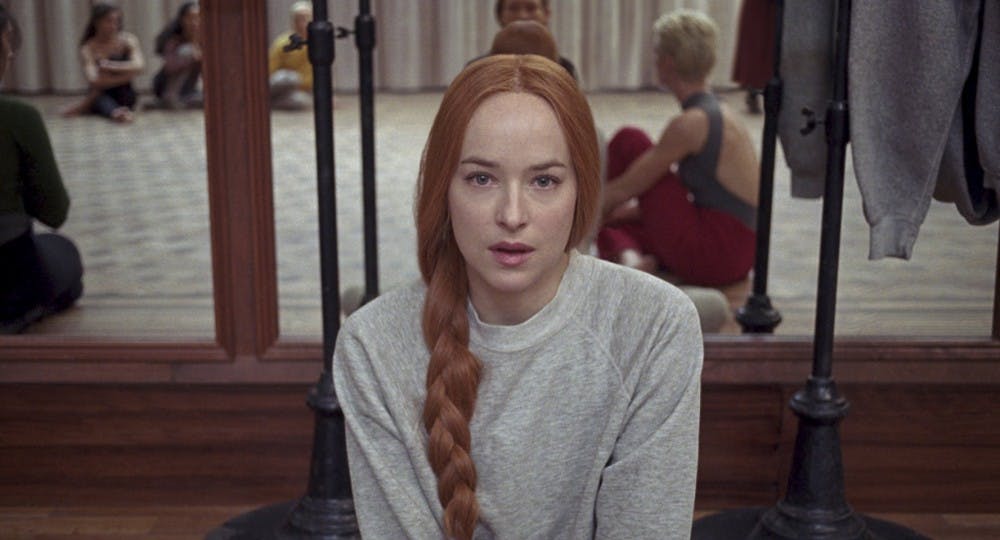Dakota Johnson gave perhaps the oddest pair of performances of the year.
In February, she donned the guise of the doe-eyed, innocent Anastasia Steele in the final installment of the reviled “Fifty Shades of Grey” saga. She also gave the performance of the year — and maybe of her lifetime — in Luca Guadagnino’s horror masterpiece, "Suspiria," in which she plays Susie Bannion, a young American in Germany with dreams of becoming a dancer at a prestigious company.
To anyone unfamiliar with Johnson’s other work — she’s also stellar in “A Bigger Splash” and “The Social Network” — “Fifty Shades” might present her as a bad actress, though she’s anything but. Her face is expressive and subtle, and her demeanor, which can change with grace and efficacy from gentle to ice cold in a fraction of an instant, is perfect for the screen. With “Suspiria” she brings a thrilling new level of physicality and gravitas to her performance.
But you probably just know her as “the girl from ‘Fifty Shades.’”
That she’s so often typecast with her worst screen performances and movies is indicative of a sad Hollywood trend wherein immensely talented actors and actresses become forgotten or dismissed simply because of a bad film.
It happened, perhaps most severely of all, to Kristen Stewart and Robert Pattinson, stars of the initially despised, though now reasonably loved, “Twilight” saga. Stewart and Pattinson are a pair of actors who’ve since demonstrated immense range and depth onscreen but who were for a long time dismissed simply because of their association with a bad franchise.
No one saw “Twilight” and presumed its leads the next pair of indie darlings, but both actors had other credits in their repertoires that ought to have warranted a second chance. And yet, The New York Times’ Manohla Dargis wrote of Pattinson: “He’s so lifeless, he might as well be dead — oops, he already is.”
In fact, perhaps the only living human who saw “Twilight” and made more of either actor than that one of them sparkles and both look disturbingly anemic was the legendary French auteur Claire Denis, who said, “I saw the four parts of the ‘Twilight’ series when it was released. I was amazed by the two heroic young leads.”
But the distinction that ought to have been made was a vital one between the performance and its context. Had Pattinson and Stewart — or for that matter, Johnson — given a weak performance in a stronger movie, dismissing their talents might have been a reasonable course of action. But for young actors in meatless roles directed by no-name directors, they made the most of what they were given.
There’s a knowing irony sewn into the depths of those performances. It’s not in the broad strokes, but stuffed in between the lines. You can see it in the way Johnson begs her violently masculine lover to do unsavory things with her with an almost campy grace, or in the way the manic lovers of “Twilight” occasionally look ready to explode with laughter the second the camera cuts. They’re bad performances, but bad performances by actors with ample talent.
Stewart went on to star in acclaimed works like Olivier Assayas’ “Clouds of Sils Maria” and “Personal Shopper.” Pattinson landed roles in A24’s vibrant neo-noir “Good Time” and the aforementioned Claire Denis’s upcoming “High Life.” Johnson became a favorite of one of the most exciting up-and-coming cinematic voices.
But they all very nearly didn’t make it, only because they were dismissed early on for unmemorable performances in terrible movies.




